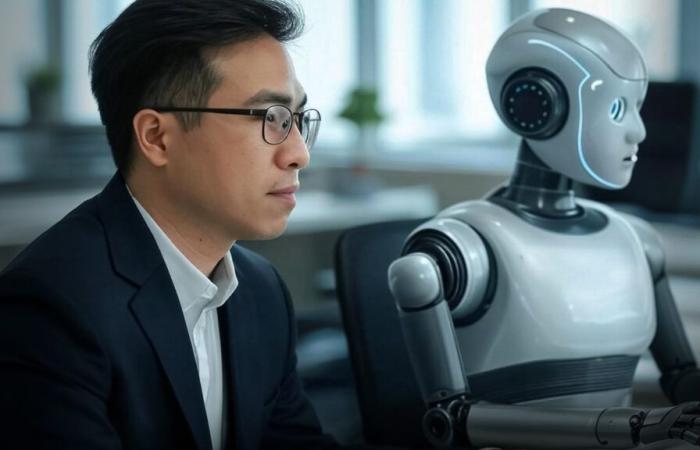⇧ [VIDÉO] You might also like this partner content
Sam Altman, CEO of OpenAI, announced that autonomous AI agents could join the workforce as early as this year. Acting as real virtual employees, these tools could perform complex tasks without human intervention and thus significantly increase business productivity. This announcement comes as AI companies accelerate their efforts to develop applications that generate substantial returns on investment.
In October last year, Microsoft introduced its first autonomous AI agents, a new kind of tools that would help businesses transition from traditional applications to truly AI-driven workflows. Offered in Dynamics 365, the company’s professional applications platform, these agents are designed to support sales, service, finance teams, etc.
Microsoft officials say they have recently been moving toward agents that can make purchasing decisions and complete transactions independently. Such agents would be available within just a few quarters. Among the early adopters is renowned consulting firm McKinsey, which has an AI agent performing tasks such as scheduling follow-up meetings and handling client requests.
For its part, OpenAI plans to launch its first AI agent, known by the code name “Operator,” later this month. The tool could perform tasks on behalf of users, such as writing an entire computer program or planning a trip. This announcement suggests a growing adoption of this type of tool in companies during the year. “ We believe that in 2025 we could see the first AI agents joining the workforce and significantly changing business production
” Altman wrote in a blog post published Monday.
These new tools would not only significantly increase productivity, but also significantly reduce the time spent on administrative procedures. According to McKinsey, in view of these advances, 30% of hours worked across the entire US economy could be automated by 2030.
Notable progress towards general AI
In his blog post, Altman also touched on OpenAI’s long-term goals, particularly regarding general AI. He says the company is now focusing on developing “superintelligence,” AI that would surpass human intelligence in the majority of areas. “ We are starting to move towards superintelligence in the true sense of the term “, he says. “ We love our current products, but we’re here for a bright future. With superintelligence, we can do something completely different
».
Notably, Altman says the company has now gained key points of understanding regarding the development of general AI. As concerns about the impacts of AI on society increase as the technology becomes more capable, the entrepreneur highlights its considerable potential for innovation. “ Superintelligent tools could dramatically accelerate scientific discovery and innovation, far beyond what we are capable of doing on our own, and thereby dramatically increase abundance and prosperity “, he suggests.
See also
Persistent animosity from Elon Musk
As OpenAI demonstrates major progress in its long-term goals, Altman also discussed long-standing tensions with Elon Musk, CEO of SpaceX and Tesla among others, recently appointed Minister of “Government Effectiveness” under the mandate of Donald Trump. Altman believes Musk could maintain his animosity toward OpenAI, but thinks he wouldn’t go so far as to use his relationship with Trump to take action against the company.
The two famous businessmen have a conflicting history that has lasted for years. After co-founding OpenAI in 2015, Musk left the company in 2018 due to an internal power struggle. Last year, he filed a lawsuit against the firm, alleging that it was failing to live up to its initial commitment to develop AI on a not-for-profit basis. He dropped his lawsuit and filed a new one shortly after, this time broadening his accusations to Microsoft.
Altman believes that Musk will continue this legal back-and-forth again this year. “ I think he’s going to do all sorts of bad things. I think he’s going to continue to sue us, drop the lawsuits and file new ones, etc. ” Altman told Bloomberg. Still, “the question is whether he will abuse his political power as co-president, or, whatever he calls himself now, to go after a business competitor.” I don’t think he will. I really don’t think so,” he concludes.







